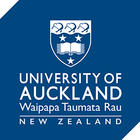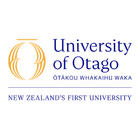- News and articles
- Events
- Find usIDP AustraliaIDP BahrainIDP BangladeshIDP CambodiaIDP CanadaIDP ChinaIDP EgyptIDP GhanaIDP Hong KongIDP IndiaIDP IndonesiaIDP IranIDP JordanIDP KenyaIDP KoreaIDP KuwaitIDP LebanonIDP MalaysiaIDP MauritiusIDP Middle EastIDP New ZealandIDP NigeriaIDP OmanIDP PakistanIDP PhilippinesIDP Saudi ArabiaIDP SingaporeIDP Sri LankaIDP Taiwan, ChinaIDP ThailandIDP TurkeyIDP UAEIDP VietnamIDP Corporate
- Social
- English
Know why Studying in New Zealand is a great option for Nepalese Students
Ranking fourth on the Global Peace Index 2023, New Zealand is undoubtedly the safest country to study in. With globally ranked universities and a responsive education system, it has the right mix of opportunities, culture, economy and climate to thrive for a Nepalese student. Not to miss, its unspoiled scenery will make your experience worth every penny.
10 reasons to study in New Zealand
Here are the main reasons to choose New Zealand as your study destination:
High-Quality Education
Stunning Natural Landscapes
Diverse and Inclusive Society
Safety and Low Crime Rate
English as the Main Language
Work Opportunities for Students
Supportive Student Services
Globally Recognized Degrees
Cultural Exchange and Adventure
Quality of Life
Student visa requirements for New Zealand
If you are over 18 years old and plan to study in New Zealand for more than six months, here’s an overview of the types of student visas available for you:
S.No. | Types of student visa | Description |
1 | Fee Paying Student Visa | Study full-time for up to four years and be able to work part-time |
2 | Exchange Student Visa | Study full-time for up to four years in an approved student exchange program |
3 | Foreign Government Supported Student Visa | Study full-time for up to four years on a foreign government loan or scholarship |
4 | Pathway Student Visa | Study up to five years for 3 consecutive courses on a single student visa and be able to work part-time |
* For detailed information, please visit the New Zealand Government’s Immigration website
Intakes available in New Zealand
In some universities, intakes may also be referred to as a semester. The two intakes available in New Zealand are:
Intake Type | Start Date | Commonly Known As |
Semester One | February or March | Autumn Intake |
Semester Two | July or August | Spring Intake |
Rolling Intakes | Various Times | Flexible Intakes |
Admissions for vocational courses may also be available in March, April and May.
IELTS for studying in New Zealand
New Zealand has a total of 8 universities, all of which hold prominent positions in prestigious global rankings, including the QS World University Ranking and Times Higher Education Ranking.
Here are the IELTS requirements of all the Kiwi universities:
S. No. | Universities | IELTS Overall | IELTS Listening | IELTS Reading | IELTS Writing | IELTS Speaking |
1 | Auckland University of Technology | 6 | 5.5 | 5.5 | 5.5 | 5.5 |
2 | Lincoln University | 6 | 5.5 | 5.5 | 5.5 | 5.5 |
3 | Massey University | 6 | 5.5 | 5.5 | 5.5 | 5.5 |
4 | University of Canterbury | 6 | 5.5 | 5.5 | 5.5 | 5.5 |
5 | University of Otago | 6 | 5.5 | 5.5 | 5.5 | 5.5 |
6 | University of Waikato | 6 | 5.5 | 5.5 | 5.5 | 5.5 |
7 | Victoria University of Wellington | 6 | 5.5 | 5.5 | 5.5 | 5.5 |
8 | University of Auckland | 6 | 5.5 | 5.5 | 5.5 | 5.5 |
*Minimum IELTS score accepted, the requirement varies with the course, hence do check when applying
Cost of studying in New Zealand
If you want to know the total cost of studying in New Zealand for Nepalese students , you can get in touch with an IDP expert . Most commonly humanities, arts and education courses are cheaper, while subjects such as medicine and engineering are likely to be more expensive. If you wish to study at the postgraduate level, the tuition fees are typically higher, and the costs vary depending on the program. As with most other countries, MBA programs are often the most expensive. The average cost for these programs ranges between NZD 31,000 and NZD 50,000 (indicative).
S.No. | Study Program | Cost (in NZ)* |
1 | Undergraduate degree | 20,500 - 25,000 annually |
2 | Master's degree | 19,000 - 29,000 annually |
3 | Doctoral Degree | 6,500 - 9,000 annually |
4 | MBA | 31,000 - 50, 000 annually |
*Please note that all figures are indicative
Scholarships to study in New Zealand
Here are some popular scholarship programs you can apply to as a Nepalese student:
Name of scholarship | Description |
New Zealand International Doctoral Research Scholarships (NZIDRS) | Funded by the New Zealand government, these scholarships are for Nepalese students who wish to pursue a PhD in New Zealand. Inclusions under this award are university tuition fees, associated student levies, living stipend (up to NZ25,000 tax-free) and health insurance coverage (up to NZ600 annually) for three years. (However, it may vary as per different education providers) (Source:https://www.findaphd.com/study-abroad/aus-nz/phd-study-in-new-zealand.aspx) |
New Zealand Commonwealth Scholarships | Nepalese students who apply for a master’s degree or PhD can try for the Commonwealth Scholarship and Fellowship Plan (CSFP). The plan will cover tuition fees, living, travel and health insurance, and establishment allowance. This scholarship offers many benefits such as: Full tuition fees An allowance of NZ 491 per week for living expenses For covering, setup costs an established allowance of NZ 3,000 Medical and travel insurance and research cost for postgraduate students (Sources: *https://www.mfat.govt.nz/en/aid-and-development/new-zealand-government-scholarships/ *https://www.auckland.ac.nz/en/study/international-students/scholarships-loans-and-funding/development-scholarships/commonwealth-scholarships.html) |
New Zealand Excellence Awards (NZEA) | NZEA features scholarships across all eight universities, offering an opportunity for Nepalese students to experience New Zealand excellence in various fields. This scholarship is funded by Education New Zealand (ENZ) and New Zealand universities catering to Nepalese students. The number of scholarships in PG programs is 28 and in UG is 3. The value of this scholarship is NZ 5,000 each for the PG course and NZ 10,000 each for the UG course. (Source:https://www.studyinnewzealand.govt.nz/how-to-apply/scholarship/) |
NZ-GRADS New Zealand Global Research Alliance Doctoral Scholarship | The Global Research Alliance on Agricultural Greenhouse Gas Emissions has launched a new NZ-GRADS program if you aspire to complete your PhD in agriculture emission science. It covers the following expenses for 36 months (3 years): Tuition fees up to NZD 10,000 per year An annual stipend for covering expenses of NZD 28,000 per year (tax-free) Medical insurance up to NZD 700 per year Visa application costs do not exceed up to 1,000 Airfare upon returning to New Zealand up to a maximum amount of 6,000 Research allowance up to 1,500 Feel free to reach out to your IDP international education expert for the application process ( Source:https://www.studyinnewzealand.govt.nz/how-to-apply/scholarship/) |
SEG Scholarship | This scholarship program is funded by the Soshi Educational Group. It encourages the study of geophysics and related geosciences for undergraduate (A and B scholarships) and other programs (C scholarships) Value of the scholarships a) Scholarship A: NZD 7,000 annually b) Scholarship B: NZD 5,000 annually c) SEG Scholarship C: NZD 3,000 annually The length of the award is one year Sources: *https://www.careers.govt.nz/scholarship/ https://www.studyinnewzealand.govt.nz/how-to-apply/scholarship/ |
Palmerston North City Mayor's Goodwill Ambassador Scholarship | It is sponsored by the City Council of Palmerston North for promoting Palmerston North as a favourable location for international students. It is provided for career-based/vocational, undergraduate, and postgraduate courses. Value of the scholarship: NZD 1,000 towards the first year's tuition (Source: https://www.studyinnewzealand.govt.nz/) |
Top courses to study in New Zealand
New Zealand offers a wide range of courses and programs for international students. Here are some of the top courses:
Business and Management
Information Technology
Engineering (Electrical, Mechanical, Civil, Software)
Health Sciences (Nursing, Medicine, Dentistry)
Environmental Science
Tourism and Hospitality
Creative Arts and Design (Graphic Design, Animation, Film, Fashion)
Agriculture and Agricultural Sciences
Education
Social Sciences (Psychology, Sociology, International Relations)
Top universities to study New Zealand
New Zealand is home to several reputable universities known for their academic excellence and research contributions. Here are some of the top universities in New Zealand according to the QS World University Rankings 2024:
S.No. | Institution | QS World University Ranking 2024 (Globally) | QS World University Ranking 2023 (Globally) |
1 | The University of Auckland | 68 | 87 |
2 | University of Otago | 206 | 217 |
3 | Victoria University of Wellington | 241 | 275 |
4 | University of Canterbury | 256 | 284 |
7 | Massey University | 239 | 292 |
5 | University of Waikato | 250 | 331 |
6 | Lincoln University | 362 | 368 |
7 | Auckland University of Technology | 407 | 486 |
Job prospects in New Zealand for Nepalese students
New Zealand offers favourable job prospects for Nepalese students. Graduates can apply for post-study work visas, and the country periodically highlights skill shortages, making it easier to find employment in those areas. Quality education, work experience opportunities, and networking can enhance job prospects. Proficiency in English is crucial, and familiarity with the New Zealand work culture is essential. Explore diverse job opportunities in sectors like healthcare, IT, engineering, and more, and consider long-term residency options if desired.
Cost of living in New Zealand for Nepalese students
The cost of living in New Zealand can vary depending on factors such as location, lifestyle, and personal preferences. Generally, New Zealand is considered to have a moderately high cost of living. Here are some key expenses to consider when estimating the cost of living in New Zealand:
Expense category | Estimated monthly cost (NZD) |
Accommodation | 1,200 - 2,500+ |
Food (Groceries) | 300 - 500 |
Dining Out | 150 - 300 |
Transportation (Public) | 150 - 250 |
Transportation (Car Ownership) | 150 - 250 + additional expenses |
Healthcare (Basic Public Coverage) | Covered by taxation |
Private Health Insurance | 50 - 200+ |
Utilities (Electricity, Water, Heating) | 150 - 250 |
Internet | 70 - 100 |
Education (Tuition and Educational Expenses for International Students) | Varies by institution |
Entertainment and Leisure | 100 - 300+ |
Insurance (Rental, Car, etc.) | Varies based on coverage |
Miscellaneous | 100 - 200+ |
Frequently Asked Questions (FAQs)
Ques 1: What are the requirements to study in New Zealand for international students?
To study in New Zealand as an international student, you'll typically need to secure admission from a New Zealand institution, demonstrate adequate financial resources, meet English language proficiency requirements, obtain a student visa , maintain health and travel insurance, pay tuition fees, provide academic records, and meet character and health criteria. It's essential to fulfil these requirements and provide any additional documents requested by the institution or immigration authorities for a smooth application and successful enrolment in a New Zealand educational institution.
Ques 2: How much gap is accepted for study in New Zealand?
Ans: A student can apply to a university in New Zealand even with a 10-year gap in their education. However, in such cases, the student may need to demonstrate their credentials and qualifications thoroughly.
Ques 3: Can I work and study in New Zealand simultaneously?
Yes, as an international student in New Zealand, you can work while studying, subject to certain conditions. Typically, you can work up to 20 hours per week during the academic year and full-time during scheduled breaks, such as summer or winter vacations. However, it's essential to check the specific conditions and limitations of your student visa, as they may vary based on the type of visa you hold and your program of study. Additionally, some research or postgraduate programs may have different work rights. Be sure to comply with New Zealand's immigration regulations to maintain your legal status while working and studying.
Our Popular Study Abroad Destinations
Study in Australia | Study in UK | Study in USA | Study in Canada | Study in New Zealand | Study in Ireland
Explore in New Zealand
Hover over the city cards to discover more!

Send funds securely with money transfer
Explore safe, convenient and fast payment solutions with our market leading partners.

Find your home away from home
We’ll help you discover student accommodation that makes you feel comfortable and at home, no matter where you are.
Cost of living calculator
Estimate how much you will need to cover your expenses including cost of living comparison for various country and accommodation options.
Can’t decide where to study?
Answer 5 quick questions to get personalised content and course recommendations




















